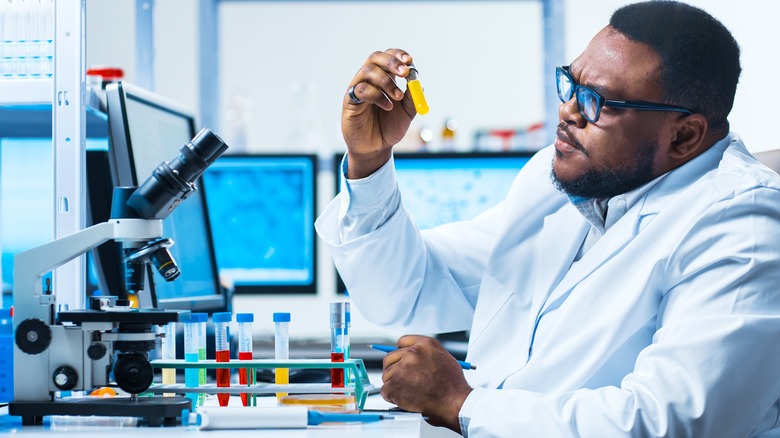What You Need To Know About Monkeypox Treatment Options
Correction 7/28/22: An earlier version of this story incorrectly described TPOXX. TPOXX can be used as an antiviral treatment for monkeypox, not a vaccine to prevent it.
The number of monkeypox cases continues to rise, with 19,188 cases reported globally, according to data from the Centers for Disease Control and Prevention. The United States has 3,590 reported cases of monkeypox, making it the country with the second highest number of cases after Spain.
Monkeypox is contagious, and you can become infected with it if you come into contact with a person who has it, per Johns Hopkins Bloomberg School of Public Health. It can spread through bodily fluids, respiratory droplets in the air, and by touching contaminated items. If an infected animal scratches or bites you, you may also become infected, reports the Mayo Clinic. The most common symptoms of monkeypox are fever, chills, muscle aches, swollen lymph nodes, and a skin rash. The rash turns into blisters that fill with pus, and eventually scab over, usually in about two to four weeks. In case you or someone you love ends up with a case of monkeypox, here's what you need to know about treatment options.
How doctors are treating monkeypox
Since monkeypox usually goes away on its own, treatment generally involves relieving symptoms of the virus (via Cleveland Clinic). This might include taking over-the-counter pain medications and staying hydrated. Certain treatments are also available for people with severe cases or those who don't respond to the vaccine, according to the Mayo Clinic. However, there is no antiviral treatment made to treat monkeypox specifically. That said, some antiviral drugs might help relieve symptoms, but there hasn't been much research on how well they work, per Cleveland Clinic.
TPOXX is an antiviral drug that may help to treat monkeypox and there are several licensed smallpox vaccines that can be used for prevention, including JYNNEOS, and ACAM2000 (per Mayo Clinic). The ACAM2000 vaccine is around 85% effective in preventing monkeypox in those who do not have the virus (via Johns Hopkins Bloomberg School of Public Health). Experts are currently working on developing vaccines made specifically for monkeypox.


